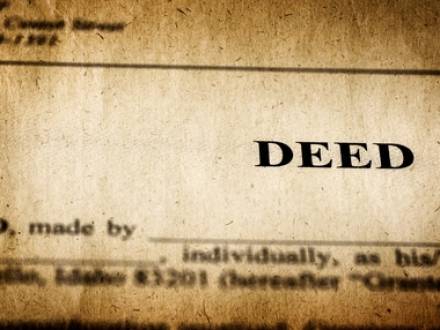Transfer-on-Death Deeds vs. Lady Bird Deeds in Texas
 Estate planning can have many more nuances and choices than many people realize. Each individual’s unique circumstances will determine the choices made during estate planning. In the state of Texas, Transfer-on-Death Deeds and Lady Bird Deeds are similar in that they both serve to transfer property upon death while avoiding probate. However, there are differences between the two that can make a difference in which one you choose.
Estate planning can have many more nuances and choices than many people realize. Each individual’s unique circumstances will determine the choices made during estate planning. In the state of Texas, Transfer-on-Death Deeds and Lady Bird Deeds are similar in that they both serve to transfer property upon death while avoiding probate. However, there are differences between the two that can make a difference in which one you choose.
Probate-avoidance deeds are often used in Texas because they can potentially keep a home out of court, preserving control while you are alive, while sidestepping Medicaid Estate Recovery. It can be beneficial to speak to an experienced Hood County, TX estate planning lawyer to determine which of these choices makes the most sense for your particular situation.
What Are the Primary Differences Between Lady Bird Deeds and Transfer-on-Death Deeds?
Both Transfer-on-Death Deeds (TODDS) and Lady Bird Deeds (LBDs) transfer property upon death without probate, but there are some essential differences between the two, including:
Lady Bird Deeds
Lady Bird Deeds are enhanced life-estate deeds that allow you to keep a life estate with the power to sell, mortgage, or change your mind with consent from the beneficiary. Lady Bird Deeds tend to offer more lifetime control and flexibility. At the time of your death, the remainder of the assets left in the Lady Bird Deed go to your named beneficiary, outside probate. You can name beneficiaries in a Lady Bird Deed in unequal percentages, and you can also name alternate beneficiaries.
A Lady Bird Deed will usually provide better protection from Medicaid estate recovery. You can have a Power of Attorney drafted that allows another person to sign a Lady Bird Deed on your behalf should you become incapacitated. Lady Bird Deeds are less likely to cause issues with title insurance companies compared to TODDs. Regarding liens and mortgages, beneficiaries take Lady Bird property subject to existing liens; no warranty passes, and a deed of trust remains.
Transfer-on-Death Deeds
While no specific statute creates a Lady Bird Deed, the Transfer-on-Death deed is created by the Texas Estates Code Chapter 114. The key features of a TODD are that it is revocable and non-testamentary. A TODD cannot be made by power of attorney like a Lady Bird Deed, and must be recorded before death. Like a Lady Bird Deed, you retain full ownership and rights during your lifetime, including homestead protections and ad valorem exemptions.
Your beneficiary or beneficiaries have no rights until your death. A TODD treats existing liens and mortgages in the same way as a Lady Bird Deed; beneficiaries take the property subject to existing liens, no warranty passes, and a deed of trust remains. The Texas TODD has what is known as a 120-hour rule.
This 120-hour rule is a provision that requires the beneficiary of a TODD to survive the property owner by at least 120 hours (five days) to inherit the property. If the beneficiary does not survive the owner by this period of time, the property will pass to the owner’s other heirs.
Should You Use a TODD or a Lady Bird Deed?
If your primary goal is to avoid probate, and the clear statutory guardrails are important to you, then you should use a Transfer-on-Death Deed. If your primary goal is Medicaid planning for long-term care, an LBD or a TODD will work equally well.
If you have a significant amount of unsecured debt and your estate is not particularly large, you might consider a trust instead of a TODD or Lady Bird Deed. Since TODD property can be reached if the estate is unable to pay claims, a living trust may be a better way to manage creditors and beneficiaries.
Contact a Tarrant County, TX Estate and Probate Lawyer
If you are ready to have a comprehensive estate plan created that will ensure your wishes are carried out after your death, a Hood County, TX estate planning attorney from Cain & Kiel Law can help. Attorney Cain is the owner of Trinity Abstract and Title in Cleburne and has served as Cleburne’s Mayor since 2012. Call 817-645-1717 to schedule your initial attorney meeting.
We're Here When You're Ready
To set up a consultation with our attorneys and get the legal help you need, please call 817-645-1717 or fill out the form below:
The use of the Internet or this form for communication with the firm or any individual member of the firm does not establish an attorney-client relationship. Confidential or time-sensitive information should not be sent through this form.
I have read and understand the Disclaimer and Privacy Policy.

 817-645-1717
817-645-1717









